State laws effectively banning abortion significantly harm LGBTQ people
Recent laws in Alabama, Georgia, and other states may carry significant consequences, particularly for transgender individuals

As more and more states move to ban abortion in hopes of triggering a court case that could lead to the Supreme Court overturning Roe v. Wade, what’s lost in the back-and-forth between supporters and opponents of abortion rights is just how drastically these draconian laws impact members of the LGBTQ community.
The most recent string of restrictive laws began earlier this year, when governors in Mississippi, Kentucky, and Ohio signed “fetal heartbeat bills” into law. Those measures prohibit someone from obtaining an abortion after a heartbeat can be detected in an embryo, which is generally around 5-6 weeks after conception. Georgia followed suit by passing a similar bill last week.
Most recently, Alabama Gov. Kay Ivey signed a measure that bans all abortions in the state except in cases where “abortion is necessary in order to prevent a serious health risk” to the woman, reports CBS News. Anyone who performs or obtains an abortion could be punished with at least 10 years, and up to 99 years in prison. Attempted abortions would be punished with anywhere from one to 10 years in prison. There are no exceptions for women who are raped or minors who are victims of incest.
Similar bills have been proposed and are making their way through legislatures in both Missouri and Louisiana.
The LGBTQ advocacy group GLAAD denounced the laws in question as an “attack on basic human rights, including LGBTQ rights.”
“Limiting access to abortion is not just a women’s issue — it is an issue that affects us all,” Clare Kenny, director of youth engagement for GLAAD,” said in a statement. “The right for a person to choose what is best for their body is a human right and we all must join in the fight to keep abortion accessible, safe, and legal.”
Gillian Branstetter, a spokesperson for the National Center for Transgender Equality, says the impact that laws restricting reproductive health care options have on LGBTQ people is threefold.
“First, LGBTQ and transgender people definitely need reproductive health care access, which ranges from ongoing care to birth control to abortions,” says Branstetter. “Second, many of the spaces that provide reproductive healthcare (like Planned Parenthood) are often times the sole provider of transition related care, including in rural areas like in Kentucky and Georgia and Alabama. So an attack on those providers is likely some attack on the access of people to transition-related care.
“Third, these are attacks on a shared principle between abortion and transgender health care: bodily autonomy,” adds Branstetter. “Transgender people know quite well, what it’s like to have a legislator step between you and your doctor, to decide what health care is necessary and what health care is not.”
Branstetter notes that there are some commonalities between the fight for reproductive health services and the fight for transgender health care. For one thing, the people who fight against abortion access — or at least the think tanks and organizations who have pushed for restrictive measures — are also likely to support laws that restrict transgender people’s ability to access health care or have it covered by insurance or Medicaid.
“There are a lot of echoes in the attacks on abortions and the attacks on transition-related health care,” she says. “We just had a ban signed in the state of Iowa that prevents public funds from being spent on transition-related care. And unfortunately, such actions are rather common, even at the federal level. There are major pushes within the Department of Health and Human Services to allow doctors to turn away transgender people, not just those accessing transition-related care, but really any care. And these have really dire impacts.
“There was a story in the Associated Press just this morning, about a transgender man, who was pregnant and arrived at an ER in Michigan and the nurses did not believe that he was pregnant, even though he reiterated it several times and said he was transgender,” adds Branstetter. “So they did not respond to him in the same way that they might to a cisgender woman who was pregnant, and unfortunately, his labor ended in a stillbirth. There are really severe impacts to policies that limit transgender people access to any form of health care. and reproductive health care is absolutely a part of that.”
Candace Bond-Theriault, senior policy counsel for reproductive health rights and justice at the National LGBTQ Task Force, says many people may falsely believe that LGBTQ people aren’t affected by laws governing reproductive health options, including access to abortion.
“I think the misconception that LGBTQ folks don’t need access to reproductive heath services and that we don’t get pregnant or need access to an abortion is just really bisexual erasure, it’s transgender erasure, it’s just an erasure of a of all of the real identities of people within the LGBTQ community,” Bond-Theriault says, noting that intersex individuals, some nonbinary people, and transgender men can also get pregnant, in addition to cisgender women. “And unfortunately, when people hear LGBTQ, in their minds, they still see only gay men, which is really problematic.”
A recent study by George Mason University found that LGBTQ-identified youth are twice as likely to get pregnant or get somebody else pregnant, which Bond-Theriault attributes this to the lack of comprehensive or LGBTQ-inclusive sex education, including the failure to understand sexual fluidity. She says the higher risk of pregnancy further underscores the importance of ensuring LGBTQ youth can access reproductive health services.
Bond-Theriault also notes that there are intersections between LGBTQ people and people who are poor, and therefore may not have the resources needed to access certain types of health care. Therefore, passing severe restrictions on reproductive health services have a doubly negative impact on more marginalized communities.

Both Bond-Theriault and Branstetter note that, even prior to the most recent laws, more than half of all states already made it difficult for people, particularly those who are lower-income or live in rural areas, to access health clinics that provide reproductive care, including birth control, cervical cancer screenings, prenatal are and abortion services. Bond-Theriault says that more privileged communities might feel more of an immediate or swift impact if Roe v. Wade were overturned, but restricted care is already a reality for less privileged communities.
“I don’t think we need to view it as a hypothetical,” adds Branstetter. “You’re seeing it in places where, even if abortion has been banned through some state law, access and options have been limited and denied that many people are forced to travel great distances just to access reproductive care. That’s something right now, that’s happening today.”
She further warns that women who cannot travel long distances to obtain an abortion may resort to other more drastic measures.
“One thing that I can’t stress enough is that you can’t ban health care, you can only ban safe health care,” she says. “You can only sweep it under the rug, make it harder to access, and make it more dangerous when people do access it
“I used to be a reporter, and I was fortunate enough to report on a story about transgender people who were accessing hormone therapy, usually prescription pills, over the black market through online pharmacies based in Pakistan and Vanuatu and Russia, where the regulations aren’t as tight,” Branstetter adds. “And while there doesn’t seem to be any distinct instances of them being put at risk here, medical professionals will tell you that you often times don’t know what you’re getting when you’re buying from these places.”
Support Metro Weekly’s Journalism
These are challenging times for news organizations. And yet it’s crucial we stay active and provide vital resources and information to both our local readers and the world. So won’t you please take a moment and consider supporting Metro Weekly with a membership? For as little as $5 a month, you can help ensure Metro Weekly magazine and MetroWeekly.com remain free, viable resources as we provide the best, most diverse, culturally-resonant LGBTQ coverage in both the D.C. region and around the world. Memberships come with exclusive perks and discounts, your own personal digital delivery of each week’s magazine (and an archive), access to our Member's Lounge when it launches this fall, and exclusive members-only items like Metro Weekly Membership Mugs and Tote Bags! Check out all our membership levels here and please join us today!





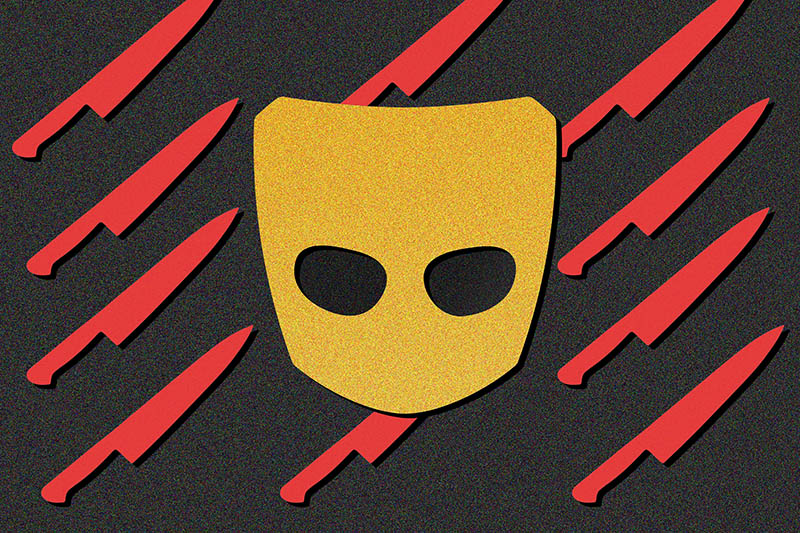

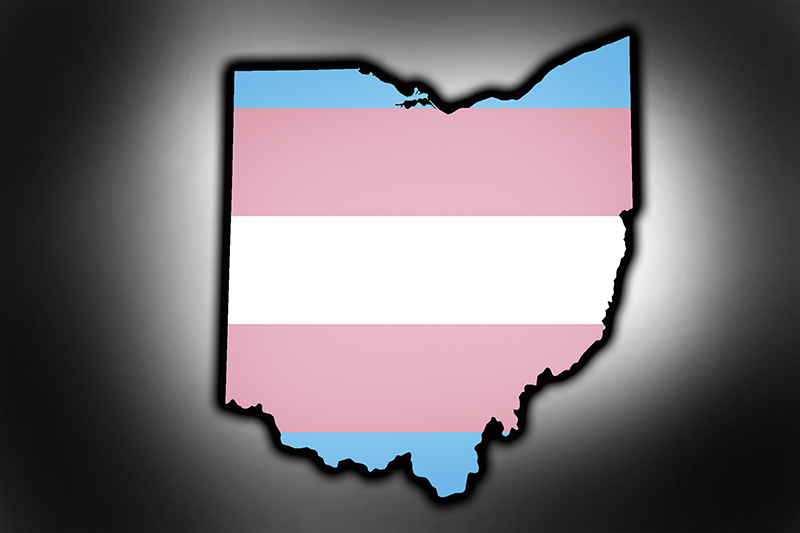















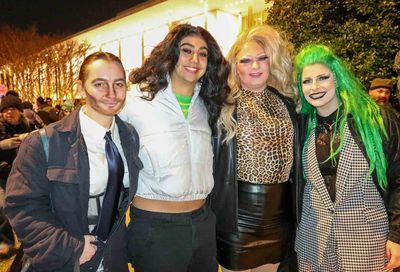
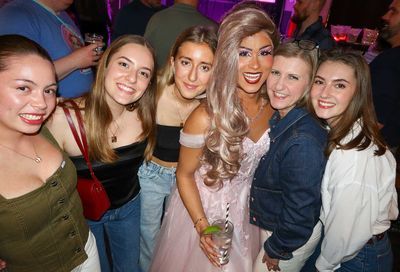
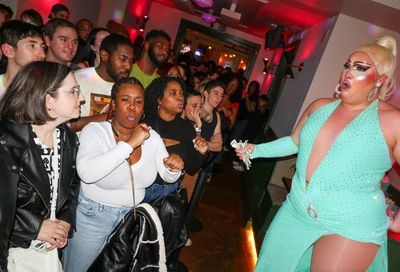
You must be logged in to post a comment.